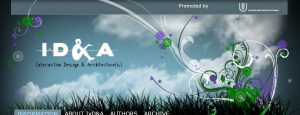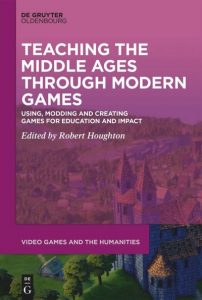“Acta Ludologica (ISSN 2585-8599, e-ISSN 2585-9218) is a double-blind peer-reviewed scientific journal published twice a year in both online and print versions. It focuses on the comprehensive discourse of games and digital games, including theoretical and empirical studies, research results, and their implementation into practice, as well as professional publication reviews and scientific reviews of digital games.
Journal issues include scientific reflections on digital and non-digital games, and related media and digital competencies, their creation, design, development, research, history, sociology, psychology, marketing, and the future associated with phenomena of the digital-gaming sector. The journal has no thematically oriented issues, so this CFP is general for manuscripts of any topics related to games and digital games.
Acta Ludologica’s sections: game studies, interview, reviews, add-ons
More information about the individual journal sections, instructions for authors, as well as templates are available in the journal’s Guidelines. Submitted manuscripts should strictly follow the outlined format as well as the journal’s Citation Rules.
Submissions are accepted only in English, with no publication fees, article-processing charges (APCs), or article submission charges.
Contact and manuscript submissions: actaludologica@fmk.sk
Journal’s web and open access archive: www.actaludologica.com
Acta Ludologica is indexed in ERIH Plus, ICI Journals Master List, Ulrich’s Periodical Directory, CEEOL, and CEJSH. In addition, the journal is under the indexing process for the Emerging Sources Citation Index (ESCI) – Web of Science Core Collection, Scopus, Cabell’s Directories, and EBSCO.
The submissions deadline is December 31, 2022.
Game Studies: theoretical articles in the extent of 21,600-54,000 characters (12-30 author pages); research results and their practical implementation in the extent of 12,600-54,000 characters (7-30 author pages)
Interview: interviews with people, whose contribution is important to the development of game studies and the digital game sector (scholars and scientists of games studies and related fields, game developers, professionals of the gaming sector, game events organizers, etc.), to the extent of 5,400-18,000 characters (3-10 author pages);
Reviews: reviews of monographs and textbooks from the fields of digital games and game studies, which are not older than one year, in the extent of 5,400-9,000 characters (3-5 author pages); reviews of digital games based on specific context of theoretical or research framework, in the extent of 5,400-9,000 characters (3-5 author pages);
Add-ons: short-ranged scientific, philosophical and artistic reflections on phenomena of the comprehensive game world in the extent of 3,600 characters (1-2 author pages)”
+infos(oficial): https://actaludologica.com/




